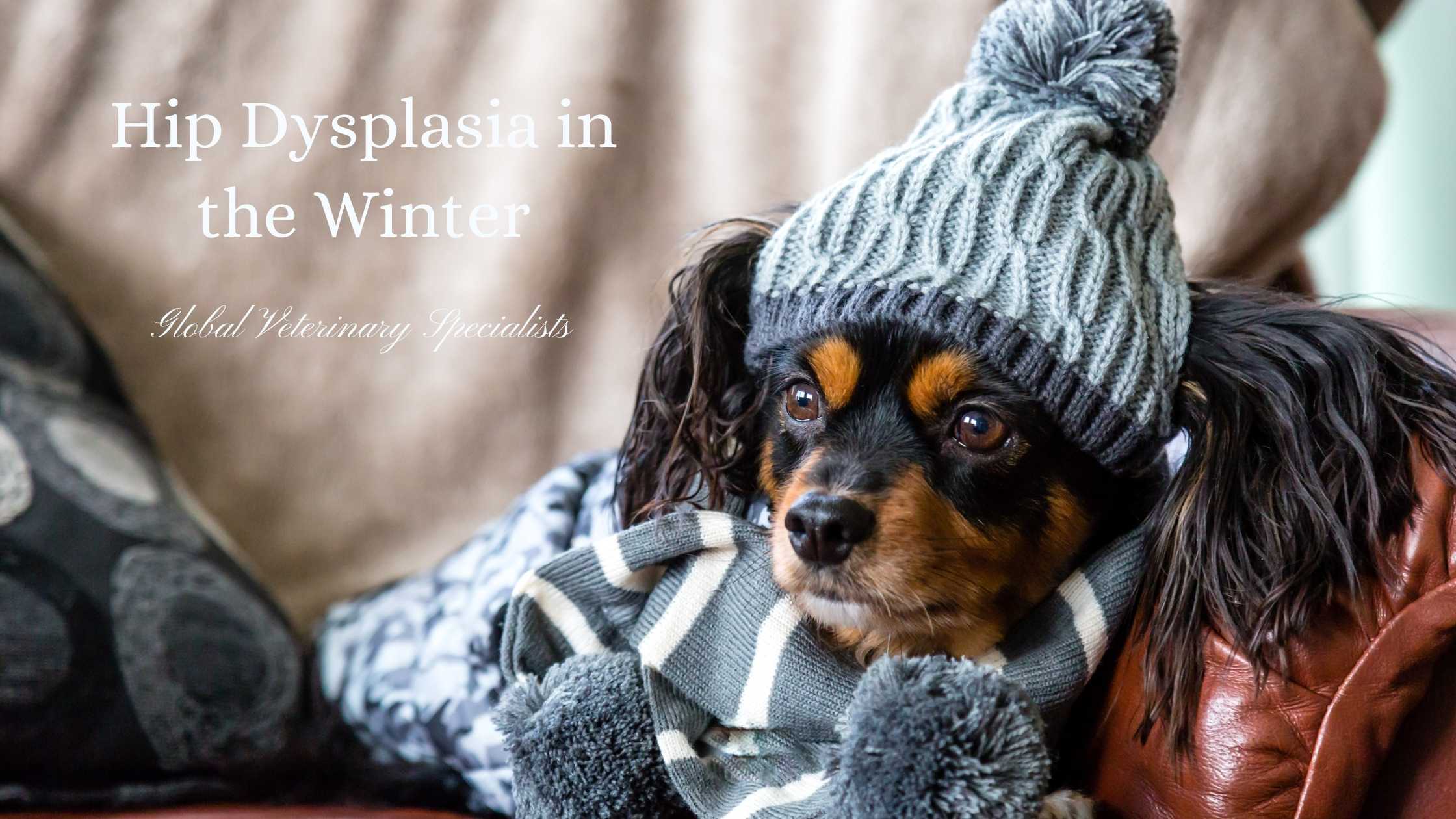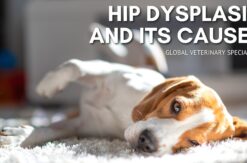Your pet may feel more discomfort during the winter since temperatures have dropped and may show more or worsening symptoms if they have been diagnosed with hip dysplasia. It is essential to be conscious of your pet’s health, safety, and comfort when it is cold outside to ensure that they, too, have the happiest of holidays.
What is Hip Dysplasia?
Hip dysplasia (HD) is a condition of abnormal laxity of the hip joint. This laxity stretches tissues surrounding the hip joint and causes inflammation, pain, and hind limb lameness. Over time, as the condition progresses, it can lead to secondary osteoarthritis.
The cause of HD is multifactorial: Genetics, diet, hormonal influence, and environmental factors are all believed to contribute to its development. While hip dysplasia commonly affects large breeds, it can also occur in dogs of all breeds and sizes, and even in cats.
Available treatment options include pain management and total hip replacement (THR). Because THR results in a fully functional, pain-free joint, it is considered the gold-standard surgical option for dogs and cats with moderate to severe HD.
Winter Tips for Your Pet
Here are some tips for keeping your pet safe and comfortable during the winter.
- Know their limits.
- Keep your pets indoors.
- Reduce the frequency of baths.
- Don’t shave your dog down too much.
- Consider a sweater for short-haired dogs.
- Schedule a veterinary appointment if your dog is showing any of the symptoms of HD.
The American Veterinary Association also recommends wiping your pet’s feet, legs, and belly after walks to remove any chemicals that may have been on the ground. Doing this after each walk will prevent the risk of skin irritation or animal poisoning.
Schedule an Appointment Today
Global Veterinary Specialists recognize that dogs and cats encounter orthopedic injuries, disabling difficulties, and diseases that can affect their lives. Each GVS surgeon has more than twenty years of experience treating complex problems that may arise in your pets.
We are teachers, mentors, inventors, clinical researchers, and surgeons driven to achieve excellence for every animal. Please contact us today to learn how we can help restore your pet’s quality of life.
Resources:
“Cold Weather Animal Safety.” The American Veterinary Medical Association (AVMA).
“Cold Weather Safety Tips.” The American Society for the Prevention of Cruelty to Animals (ASPCA).



